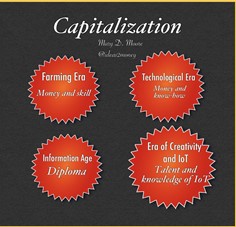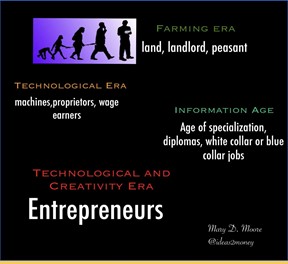- Homepage
- Transformational Leadership Courses
- Exciting Hybrid Study System by TBC-InTV, UK
- Wealthopia
- Curriculum for Teaching Autistic Individuals
- Leading an Autistic Individual
- Political Leadership, International Criminal Law
- 15 Invaluable Laws of Growth
- Public Speaking
- A Theory of Everything – Things I Wish I’d Known at Your Age
- Seminars & Workshops: Leadership Gold, A John Maxwell Certificate Course
- 21 Irrefutable Laws of Leadership
- Sometimes You Win Sometimes You Learn
- Becoming a Person of Influence
- Everyone Communicates, Few Connect
- Seminars & Workshops: Wealthopia Generation’s Gaining Influence and Wealth in the 21st Century
- Seminars & Workshops: Manifesting Your Corporate Success
- What people are saying about Wealthopia Generation Seminars
- Eco Vs Ego
- Win System
- The English Language Coaches of TBC-InTV ( formerly International Languages by Mary Moore, LLC
- Business English for Non Native English Speakers (BEFNNES)TB: The Slangman Guide to Bizspeak 1
- Let us Connect 1A(ECP 1A) “Wanna Talk 1”
- Let us Connect 2 (English Conversation Practice 2 -ECP2) TB:Wanna Talk 2
- TBC-InTV, UK Channel’s 21st Century Personal and Career Development HYBRID COURSE
- Let us Engage 2 (English Conversational Fluency 2) TB: Conversation Book 2
- WIN SYSTEM Story Telling Course in English for Middle School
- WIN SYSTEM Story Telling Course in English for Middle School
- Basic Public Speaking for High School Students
- Accent Neutralization
- News & Public Affairs
- Events
- Homepage
- Transformational Leadership Courses
- Exciting Hybrid Study System by TBC-InTV, UK
- Wealthopia
- Curriculum for Teaching Autistic Individuals
- Leading an Autistic Individual
- Political Leadership, International Criminal Law
- 15 Invaluable Laws of Growth
- Public Speaking
- A Theory of Everything – Things I Wish I’d Known at Your Age
- Seminars & Workshops: Leadership Gold, A John Maxwell Certificate Course
- 21 Irrefutable Laws of Leadership
- Sometimes You Win Sometimes You Learn
- Becoming a Person of Influence
- Everyone Communicates, Few Connect
- Seminars & Workshops: Wealthopia Generation’s Gaining Influence and Wealth in the 21st Century
- Seminars & Workshops: Manifesting Your Corporate Success
- What people are saying about Wealthopia Generation Seminars
- Eco Vs Ego
- Win System
- The English Language Coaches of TBC-InTV ( formerly International Languages by Mary Moore, LLC
- Business English for Non Native English Speakers (BEFNNES)TB: The Slangman Guide to Bizspeak 1
- Let us Connect 1A(ECP 1A) “Wanna Talk 1”
- Let us Connect 2 (English Conversation Practice 2 -ECP2) TB:Wanna Talk 2
- TBC-InTV, UK Channel’s 21st Century Personal and Career Development HYBRID COURSE
- Let us Engage 2 (English Conversational Fluency 2) TB: Conversation Book 2
- WIN SYSTEM Story Telling Course in English for Middle School
- WIN SYSTEM Story Telling Course in English for Middle School
- Basic Public Speaking for High School Students
- Accent Neutralization
- News & Public Affairs
- Events
Wealthopia
Wealthopia Generation

Mary Angela Moore, together with the Senator of the Republic of the Philippines Bam Aquino, (former social entrepreneur and Author of “Go Negosyo Act”) delivered a speech entitled “Wealthopia Generation” during the 7th Pilipinas Rotaract Convention. In her speech she challenged the Filipino youth to rise from poverty, fight their limiting beliefs, and excel economically during this generation she calls The Wealthopia Generation.
Coined by Angela, Wealthopia is a blend word for Wealth and Utopia based on Sir Thomas More (1477 – 1535) Utopia which is from a Greek word ou-topos meaning “no place” or “nowhere”, an imaginary world of a complex, self-contained community set on a bountiful and contented island, in which people share a common culture and way of life.
This generation which is the offshoot of the information era, in my humble opinion can be appropriately called the Wealthopia Generation.
After 500 years, an era of technological and creative dominance in economy, education, politics, religious, social, might be the answer to what Sir Thomas More longed for. The technological era ushered in unprecedented business opportunities due to the internet that paved a way to highways of information around the world. Indeed, the internet has revolutionIzed this century into an unimaginable proportion.

All throughout history, every era ushers in a paradigm shift in economy, management and leadership:
Farming era: Businesses revolved around the LAND. Business ownership to the landlord or landlady; capitalization was land or property based; human capitalization is muscle based, leadership and management styles are feudal.
Technological era: Businesses revolved around machines, and buildings. Business ownership belongs to the moneyed or the wealthy. The Industrial Revolution saw work shift from family backyard economy- home production to factory production. Due to the mass production nature of this era, leadership and management started to become hierarchical; between the owner and the workers is a middle man called supervisor or manager.
Information Age, also known as the Computer Age, Digital Age, or New Media Age, is a historical era that started in the middle of the 20th century. This era has ushered in a rapid change from the Industrial Revolution to an economy based upon information technology infrastructure.

Thus, the Information and communication technology (ICT)—i.e. electronic communication gadgets, computerized machinery, fiber optics, communication satellites, the Internet, and other ICT tools—became an important part of the world economy. the development of microcomputers greatly changed many businesses and industries. (Wikipedia)
ICT had narrowed down the parochial economic system with the internet and gadgets, territorial boundaries had collapsed virtually, opening doors to globalization. Thus, outsourcing had become possible. In the past, the economic fate of an individual was tied up to his own backyard, city, community, nation. With globalization, the economy without borders had become trendy. This allowed even the third world countries to compete with the first world in terms of job placement.
During this era, one of the most disturbing concerns is the replacement of human labor by computers. Thus, displacing the blue collared workforce, shrinking the economic possibilities for the handy work. As a result, the manual laborers had to upgrade themselves to enable themselves to join the “intellectual workers” or white collared (e.g. teachers, engineers, architects, artists, writers, lawyers,scientists, executives, journalists, consultants), who are able to compete successfully in the world market and a relatively high wages.
Common business capitalization during this era is “knowledge” based and technological know how.
Wealthopia Generation:
The fusion of technology and knowledge based industries has ushered in a wealthopia generation to everyone who can provide knowledge based services to industries across the globe through the digital based medium. Among the businesses that rose from this era are: Facebook, Linkedin, Instagram, Amazon, Ebay, Paypal, Microsoft, Google, and the list goes on.
In the third world countries like The Philippines, India, and Bangladesh to name a few, there is a growing boom of home based outsourced workers from the first world countries. This, I call the start of the Wealthopia Generation.
Unlike the preceding eras where capitalization was mere monetary, this era is nothing but knowledge and technology combined.
Such is my experience:
I started my tutorial company, English with Mary Moore, LLC with nothing but an old PC with Pentium 4 processor, an old book, and myself. I am writing this second book based on the idea from my first book “From Passion to Profit, My Love Affair with Pentium 4” and my current career which I call travel-lecture-adventure. Both books are compilations of social media posts, articles in Linkedin Pulse, or speeches I delivered in some seminars or Keynote speeches.

Technology enabled me to see the world from a mountain summit. Through YouTube, Linkedin, eBooks, Facebook, Instagram, and the like, looking down, I saw unending opportunities for creativity, and innovation using technology. With that, I saw endless opportunity to serve others through my career.
The truth is that technology vis a vis creativity complement each other, enabling us to be more creative and productive faster, and easier.
I call this generation, “Wealthopia Generation” because this generation has yielded a lot of small-scale entrepreneurs all over the globe. Websites like Linkedin, Jobstreet, and the like have proliferated due to the demand for outsourcing.
As you read my book, and as my story unfolds, It is my wish that my experiences as a young starter in this field of entrepreneurship during the Wealthopia Generation inspires more individuals to explore their luck, and position themselves to success.
My story starts with a facebook and Linkedin status I posted in January 29, 2016:

Facebook Status and LinkedIn Post January 29, 2016
“It was just a thought, a thought that became an inspiration, then a dream, and then a passion. It was a passion that I pursued with sweat and tears, failures and triumphs; but I have not regretted any step I made in trudging into unknown horizons and climbing unknown heights. A decade of adventures and misadventures, all a part of my growth as a human being, a businessperson, and a citizen of the world.”
That was fifteen years ago when I started English with Mary Moore, LLC without many resources but sheer audacity, talent, knowledge, hard work, experimentation, creativity, wisdom, serendipity, and sensitivity to my calling. How I found my version of “Eureka” during this generation I call The Wealthopia Generation; how I became financially independent; how I crafted my travels and adventures from the virtual world to the real world, this book will tell.
This book will encourage you to live a more enjoyable life by living your passion, at the same time earning decent money out of it.
For in your passion lies your destiny; in your destiny is the very essence of your life.
As I lived my passion through my career, I became happier. Hence, I did not strive to compete nor live to prove myself to anyone. I never resorted to dirty tricks of putting down any of my competitors. In fact, I never regarded anyone or any related business as a competitor. I see everyone as a collaborator, and a friend unless I see a potent threat.
Every day, as I do my business quietly, I end my day peacefully as I sleep in the serenity of my bedroom. What a life full of freedom!
Day in and day out, my life has been just as calm as a summer sea that the only thing you can see is the shimmering sun. With my spirit enjoying every breath of my passion, money became secondary. My simple needs and wants are all provided for by merely working on the things I am passionate about. Oftentimes, there is an overflow of financial resources, enough to share with the needy. With my business, my life might not be without a little challenge from time to time, but it has become less and less mundane as I see the work of my hands touch and change lives for the better. Seeing the beauty of life unfolding before my very eyes, looking at people rise from the ranks, hearing my students achieve the achievable, joy had become my constant companion. Getting away from the mundane, work has never been a burden as there is something new to look forward to each day. What an exciting generation of opportunities!
I am writing this book especially for the young and aspiring entrepreneurs. For the millennials and the generations to come who grow up with gadgets beside them, that they may find something worthwhile investing time on than mere gaming, useless chatting, and aimless posting in social media.
This book is for all ages, specifically for those who’ve been aspiring to be financially independent, but short on guts to jump into the challenging world of entrepreneurship or business. It’s for those who’ve been pursuing their passion aimlessly, so that they may find themselves with strategies and ideas to propel themselves to success.
Wealthopia Generation is the ultimate guidebook for entrepreneurs who are pursuing their passion.
This book is based on my experiences as an entrepreneur for fifteen years: how I started, how I succeeded, how I failed, and how I maneuvered my business into a better venture.
This book is also for individuals with multiple interests, that they may understand the value of perfect timing attached to the changing seasons in one’s life. As they read the signs for change, they must quickly add portfolios into their respective businesses based on their passion.
A decade with English with Mary Moore, LLC made me address one passion at a time. As I grew, my business grew adding something new to it as the need ensued. My first two years were more on marketing, and virtual teaching. My next two were dedicated to developing new courses that tapped my talent for creativity and self-expression. In my fifth year, I started to open my career to invitations overseas and travel-lectures on Cultural Adaptability, International Public Relations and International Marketing, which satisfied my love for travels, adventures and cultures.On my tenth year, I became a part of John Maxwell’s International pool of leadership trainers. This had strengthened my career.
This book is the fulfillment of my passions. Ultimately, this book is designed to inspire you to audaciously pursue your passion with my “queenly” strategies using technological preparation coupled with creativity or innovative ideas. Mental, physical and spiritual preparations are also necessary in achieving your goal.
My consultancy’s slogan is, “We change your ideas into money”.